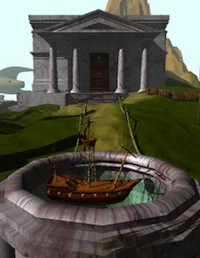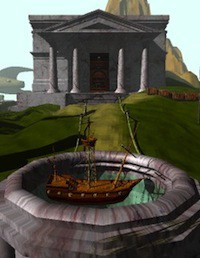What Is Most Millennial?


Twenty years ago, people talked about Myst the same way they talked about The Sopranos during its first season: as one of those rare works that irrevocably changed its medium. It certainly felt like nothing in gaming would or could be the same after it. If you remember the game, you remember that feeling of landing on Myst Island for the first time, staggeringly bereft of information in a way that felt like some kind of reverse epiphany, left with no option but to start exploring. This was a revolutionary feeling to have while staring at your PC screen. And the word-of-mouth carried — people who had never gamed before in their lives bought new computers so they could play Myst. “It is the first artifact of CD-ROM technology that suggests that a new art form might very well be plausible, a kind of puzzle box inside a novel inside a painting, only with music,” came the impassioned, if grasping prophecy from Wired’s Jon Carroll. “Or something.”
At Grantland, Emily Yoshida speaks to the creators of Myst, a game I remember most from the over-my-older-brother’s-shoulder viewpoint, since I was never any good at it. (I’d also like to posit here that the Myst theme song was the basis for that horrifying Project Runway background music they used during judgment time.) I consider that experience to be millennial as hell, even if it doesn’t turn up on Vulture’s 100 Pop-Culture Things That Make You a Millennial. (Viewable as a list here, even if a slideshow is hyper Millennial, I guess? Click. Click. Click.) No. 67 is very important.